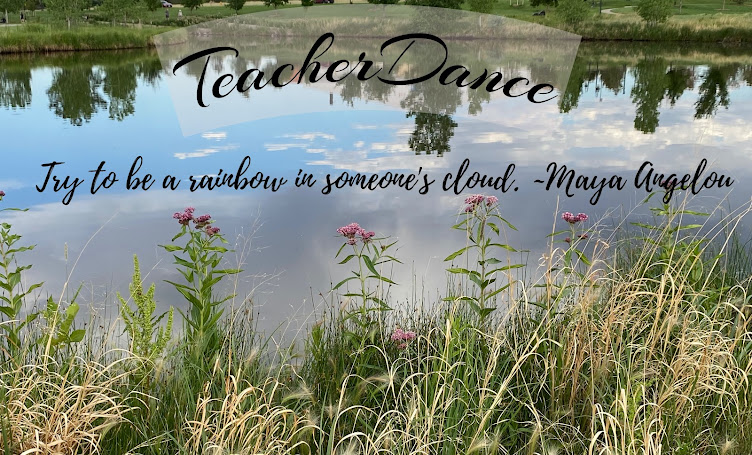 Visit Alyson Beecher on Wednesdays for Non-Fiction Picture Books at Kidlit Frenzy. Thanks to her hosting and sharing and those who add their posts, you can discover and celebrate terrific nonfiction picture books! I always learn from these books, am happy that they are more and more available today for children, for everyone!
Visit Alyson Beecher on Wednesdays for Non-Fiction Picture Books at Kidlit Frenzy. Thanks to her hosting and sharing and those who add their posts, you can discover and celebrate terrific nonfiction picture books! I always learn from these books, am happy that they are more and more available today for children, for everyone!I've been reading, then listening to the provided playlist (on Spotify) for about a week now. first from England, now from Candlewick, James Rhodes gives us readers and listeners an introduction to classical music for everyone, whether novice or professional! One lovely thing is that it is the size of an old record album, you know, an LP!
Rhodes offers a long introduction. Here is part of it:
"Bach. Mozart. Beethoven. Old guys with curly wigs, right? But trust me: those composers were the original rock stars.
Let me introduce you to some of the most breathtaking and magnificent pieces of music ever created. We'll meet the rebels and revolutionaries who wrote them - did you know Beethoven peed into a chamber pot he kept under his piano? - and find out why they're responsible for every track on your phone today. The world of classical music is going to blow your mind.
So take some time out to listen to the online playlist I've curated for you as you read. Bach, Mozart, Beethoven, Chopin, Schubert, Rachmaninoff and Ravel: the perfect introduction to classical music."
Each composer's page begins with a stunning double spread by Martin O'Neill with collaged psychedelic art evoking important history from the man's life, adding a head portrait, also with something important near or on. Their lives vary, their music innovated, even corrected prior belief. After the composer's brief biography, two pieces are discussed at length, like where used, what was unusual, and the inspiration from that particular music.
There is one double spread devoted to "The Orchestra", its families of instruments and how they are seated. And one giving a "Time Line of Western Classical Music".
Some quotes and brief pieces of information:
"Bach created some of the most perfect, life-changing music the world has ever known and single-handedly altered the course of musical history."
Beethoven said: "Music is like a dream. One that I cannot hear." Yes, he was deaf. He started losing his hearing in his late twenties. His early life was filled with his father, drunk, then waking him and forcing him to play for the father and friends for hours. Because all the money was spent on drink, Beethoven began work as an organist at age eleven to earn money for food.
"Chopin hated performing in public and in his lifetime gave only thirty concerts." He only composed for the piano.
Schubert died at the young age of thirty-one, but "composed more than 1,500 works". Among them was "Ave Maria".
Rachmaninoff, like others, was not wealthy growing up, but his "second symphony was a massive, epic, phenomenal success, and he went on to become one of the richest, most successful and celebrated pianists and composers in the world."
Ravel - Just remember "Boléro". For fifteen minutes, a sixteen-bar melody is repeated in a loop over and over by different instruments, from the quiet to the crescendo until nearly all the instruments are there.
One part I so enjoyed is how Rhodes writes directly to his readers and listeners. He talks about the music, yes, but also about personal victories, not giving up on dreams, etc. It's a pleasing ending to each part. Here, at the end of Rachmaninoff's biography:
"So if anyone has the cheek to tell you that you can't do something you really love, or that you won't amount to much or succeed in life, think about how mean people were about Sergei Rachmaninoff. And how wrong they were. Whatever you dream of doing, go do it. You might be amazed at what happens...."
"So if anyone has the cheek to tell you that you can't do something you really love, or that you won't amount to much or succeed in life, think about how mean people were about Sergei Rachmaninoff. And how wrong they were. Whatever you dream of doing, go do it. You might be amazed at what happens...."
Back matter includes a musical glossary and an index. The book is meant to be savored, perhaps like I did, a bit at a time, taking in the words, listening, listening to the music. I recognized it all, but now I know more thanks to this fabulous book!
 |
| The marvelous endpapers! |



Thanks for sharing. This looks interesting.
ReplyDeleteI enjoyed it thoroughly, Earl. Hope you do, too!
DeleteThis sounds like a fabulous book--I'm sure I could learn something from it, and the illustrations you shared--including the endpapers--are really marvelous!
ReplyDeleteThanks!
You're welcome, Susan. I certainly learned from it and enjoyed every bit.
Delete